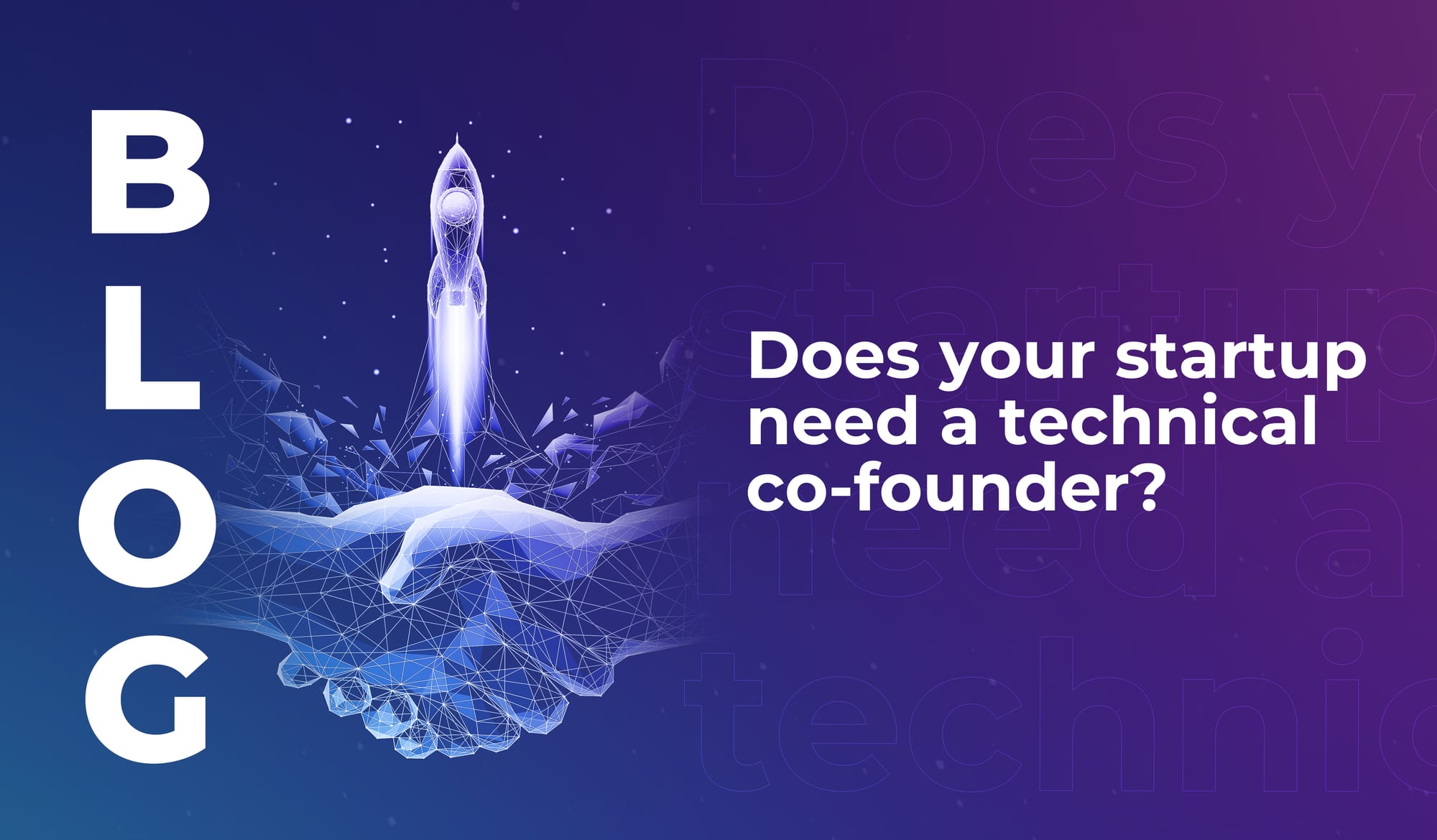
From pilots to scale: why GTM execution wins in 2026
Why 2026 is the year startups have to move beyond pilots. New research shows go-to-market execution, not demos, is the real growth advantage.


It’s the classic, painful startup dilemma for non-technical founders: Do I need a technical co-founder to make this work?
If you’ve got the big idea but can’t code your way out of a paper bag, it’s reasonable to think you have to partner with someone who speaks fluent JavaScript and knows how to build scalable backend systems. But whether or not you really need to do this depends on a whole load of variables; and there are other ways to approach startup success.
Here’s a candid look at whether you need a technical co-founder. We’ll talk about the pros and cons of bringing one on board, and how to find the right person – if that’s the path you decide to take.
Let’s be real: technical co-founders can bring huge value to the table. But not every startup needs one from day one.
Plenty of successful founders started without a technical partner. Some hired freelancers to build their MVPs. Others joined startup incubators, took on product managers with technical experience, or even learned just enough code to build a rough prototype themselves.
But if your product is fundamentally tech-driven – maybe a deep-tech platform, AI tool, or biotech application – you probably do need someone technical to build with you, side-by-side.
Dr. Wyatt McDonnell (CEO and Founding Scientist at Infinimmune) told us how his team came together:
“Infinimmune was started by a team of five interdisciplinary biotechnologists, who met at 10x Genomics in the SF Bay Area.”
For McDonnell, it made perfect sense to form a team that already had deep technical expertise baked in. But if you’re building a consumer app or a marketplace, the equation might be different.
If you’ve decided this is the right moment for you to find a technical co-founder – because you need that expertise to build your startup tech – then you come up against the challenge of actually finding the right person.
Here are our top six tips:
Use LinkedIn to let your network know you’re looking. Be specific about your vision and the skills you’re searching for. You never know who’s watching – or who they know.
If you’re working in a tech company now, think about the developers and engineers around you. Would any of them make a great co-founder?
You don’t need both founders to quit their jobs straight away. Early involvement, even just one day a week, can help you build momentum.
Just remember that openness is key. As McDonnell’s experience shows, co-founders often emerge from trusted environments where people already understand each other’s strengths.
Think back to uni. Any brilliant engineers or comp-sci grads in your class who might be up for something new? Universities are often happy to help you reconnect with alumni for startup ventures.
We know, you saw this one coming – but we’re including it because it works.
At innovation-focused events like LEAP, founders, engineers, and investors gather in one place, fired up and full of ideas. That’s the energy you want to tap into.
As McDonnell put it:
“The people you meet and the conversations you have at events like LEAP, which are intersections for many disciplines, tend to be unexpected and help you to think outside of the box – which is essential for innovation everywhere.”
Find your people in the places where innovation thrives.
If you’ve got an MVP, think about applying to an accelerator; or if you’re still at the idea stage, look for an incubator.
Both offer not just support and mentorship, but a powerful network of founders and tech experts. If you’re looking for a co-founder an incubator or accelerator can be the ideal place to meet your ideal match.
Yes, they exist – and yes, they can work.
Sites like CoFoundersLab, StartHawk, and Y Combinator’s matching tool are designed to connect founders with complementary skill sets.
Think of it like dating for startups. You create a profile, share your ideas and goals, and get matched with potential partners.
If there’s one non-negotiable, it’s that your co-founder has to believe in your idea. They have to think it can work, and they have to think it’s worth their time, talent, and energy.
McDonnell said:
“Our founding team has a deep appreciation for the power of single cell technologies, and saw an opportunity to combine underutilised tools to screen and identify antibodies from human immune systems.”
Passion and purpose, aligned with technical skill. That’s the sweet spot.
So when you start conversations, don’t just list your tech stack. Share your vision. What problem are you solving, and why does it matter? Because the right co-founder isn’t just someone who can code. They’re someone who’ll build the future with you.
The TL;DR? Don’t rush it.

Why 2026 is the year startups have to move beyond pilots. New research shows go-to-market execution, not demos, is the real growth advantage.

Three practical, expert lessons on why startups fail – and how business models, regulation and adoption unlock real tech value.

After years of acceleration, tech is entering a more selective phase. In 2026, progress won’t be measured by how much you do – but by how clearly you choose.

Why 2026 is the year startups have to move beyond pilots. New research shows go-to-market execution, not demos, is the real growth advantage.

Three practical, expert lessons on why startups fail – and how business models, regulation and adoption unlock real tech value.

After years of acceleration, tech is entering a more selective phase. In 2026, progress won’t be measured by how much you do – but by how clearly you choose.